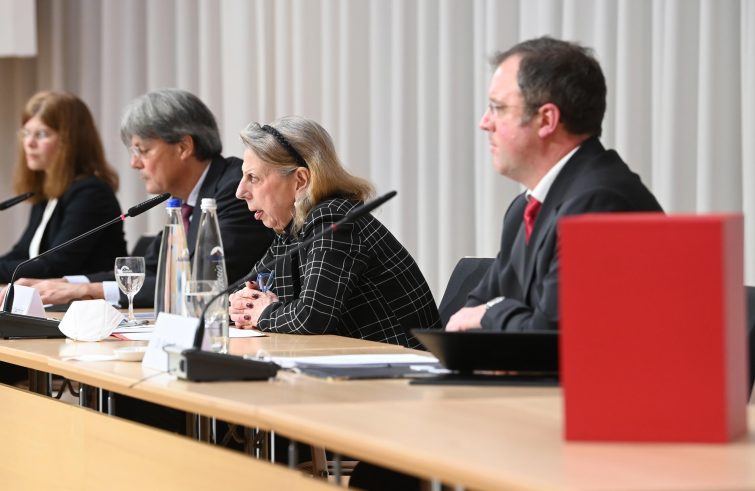
“The Holy See considers that appropriate attention should be paid to the document, whose contents are presently unknown. In coming days, following its publication, the Holy See will be able to give it a careful and detailed examination”, the director of the Vatican Press Office Matteo Bruni told journalists with regard to the report on sexual abuse by members of the clergy in the archdiocese of Munich and Freising. The study released by the law firm Westpfahl Spilker Wastl (Wsw), asked to investigate by the Bavarian archdiocese, found that at least 497 persons were abused between 1945 and 2019. Most of the victims were reportedly male minors. A total of 173 priests and 9 deacons are mentioned in the list of 235 alleged abusers. “Reiterating its sense of shame and remorse for the abuse of minors committed by clerics – Bruni said – the Holy See assures its closeness to all victims and confirms the path taken to protect the youngest, ensuring safe environments for them.”The Report looks into the governance of the archbishops who presided over the archdiocese at the time: Michael von Faulhaber, Joseph Wendel, Julius August Dopfner, Joseph Ratzinger, Friedrich Wetter and Bishop Reinhard Marx. The handling of cases by Pope Emeritus Benedict XVI, Archbishop of Munich from 1977 to 1982, as Prefect of the Congregation for the Doctrine of the Faith is also investigated in detail.
“Benedict XVI had no knowledge of the report of the law firm Westpfahl-Spilker-Wastl, which exceeds 1,000 pages, until this afternoon”,
declared Monsignor Georg Gänswein, personal secretary to the Pope Emeritus. “He will carefully examine the report in the coming days,” Gänswein continued in a statement to journalists: “The Pope Emeritus, as he has declared on numerous occasions during the years of his pontificate, is deeply shocked and ashamed at the abuse of minors committed by clerics. He extends his personal closeness and prayers for all the victims, some of whom he has met during his apostolic journeys.”
“My first thought today is for those affected by sexual abuse, who have experienced harm and suffering at the hands of Church representatives, priests, and other employees in the sphere of the Church, on an appalling scale. I am shocked and ashamed”,
said Card Reinhard Marx, archbishop of Munich and Freising in his statement regarding the report on abuses committed by members of the clergy in his diocese. “As I have said over and over again in my capacities as archbishop of Munich and Freising, I feel jointly responsible for the institution of the church in recent decades,” the cardinal continued, as reported on the diocese’s website: “As the acting archbishop, I therefore apologize on behalf of the archdiocese for the suffering inflicted on people in the space of the church over the past decades. It has been known for years that sexual abuse was not taken seriously in the church, that the perpetrators were often not properly held accountable, that those responsible looked the other way. This is precisely why, since the first expert report we commissioned in 2010, we have commissioned the expert report presented today from the law firm WSW. It is an important and indispensable building block for the processing of cases of sexual abuse in our archdiocese and also for the church as a whole.”
“Since 2010, much has been changed and enacted in the archdiocese, and we are far from finished”,
the cardinal’s assessment: “We will recommend and carry out further changes based on the recommendations of the current report”.
“It is my fervent hope that next Thursday (27 January, ed.’s note) we will be able to present the first perspectives and define the way forward”,
stated Cardinal Marx, for whom “it is high time to build on the insights of the report and take further steps forward, into the future. The abuse crisis is and remains a serious shock for the Church, and the reassessment and the way forward include guidance for victims of abuse, revision of misguided structures and attitudes of power. But it concerns more than that. In fact it involves the renewal of the Church, it involves what we are also seeking and promoting in the Synodal journey in Germany. For this Synodal Journey was based on the MHG study and its analysis.” “Coming to terms with sexual abuse can hardly be separated from the path of change, renewal and reform of the Church,” the cardinal concluded, assuring that “the perspective of those affected is now a central concern for us in the archdiocese of Munich and Freising, also with a view to taking steps towards the future”. In June 2021, Card. Marx had submitted his resignation to the Pope precisely over the issue of abuse committed by members of the clergy in Germany. His resignation was rejected by Francis. “The encounters with victims of sexual abuse marked a turning point for me. They changed and continue to change my perception of the Church,” Marx reiterated, apologising on behalf of the archdiocese “for the suffering inflicted on persons in the space of the Church over the past decades.”










